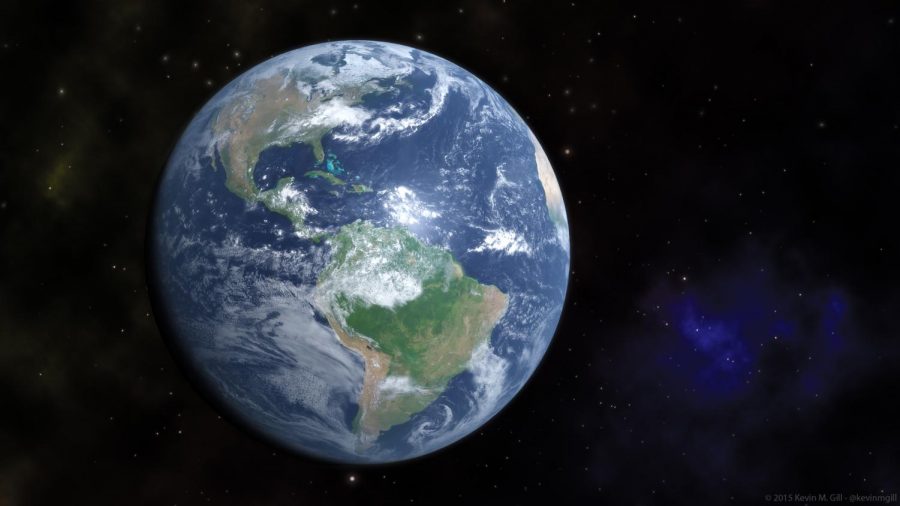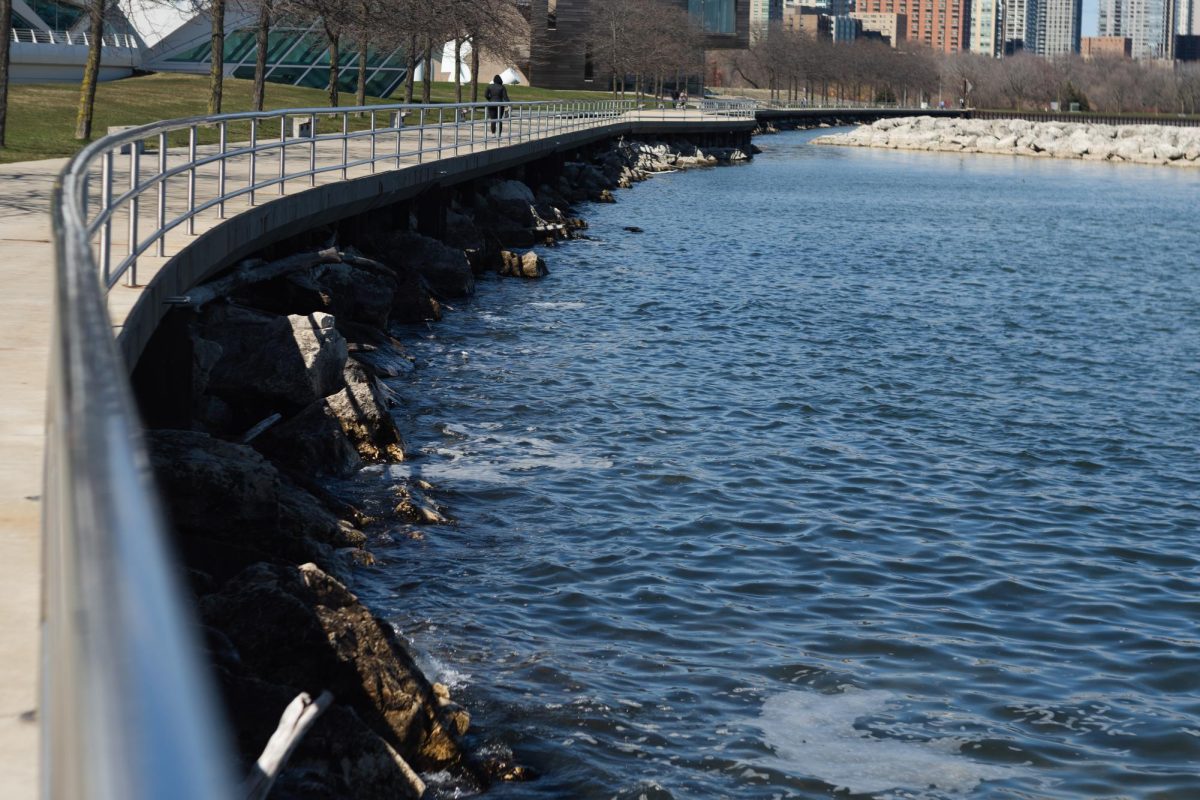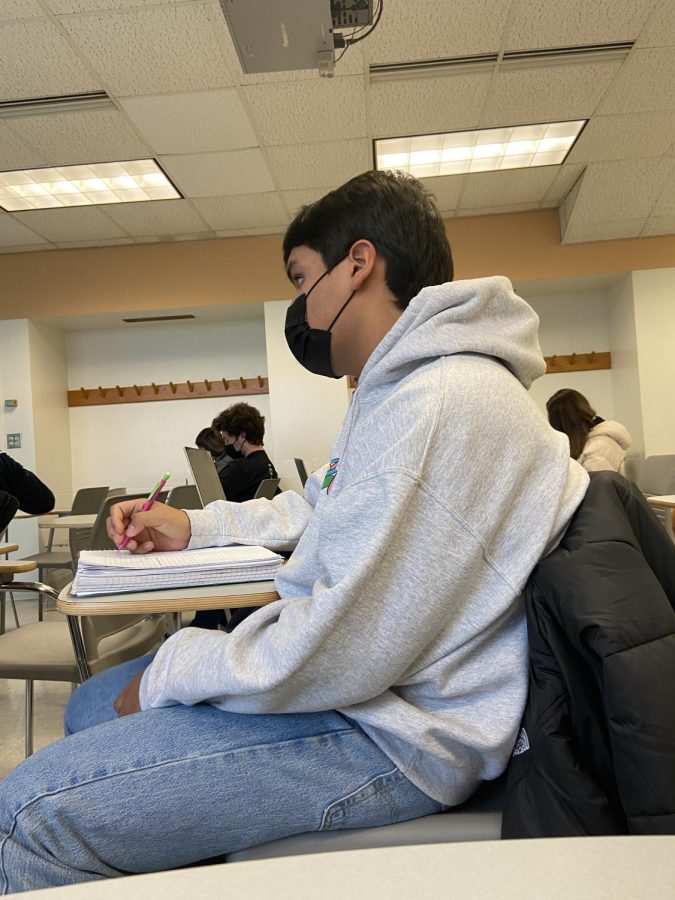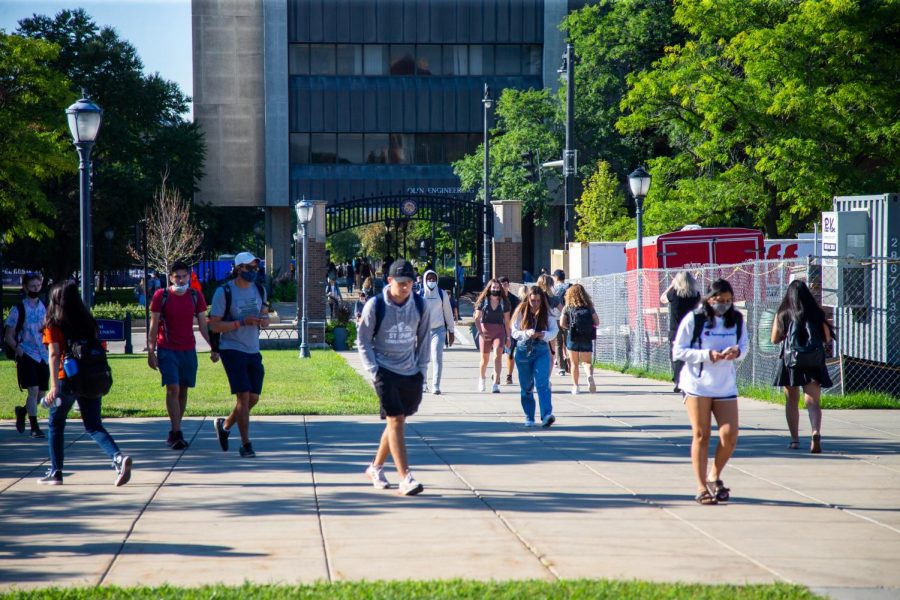As many of us look at the outside world from inside our homes today, we must take a moment to reflect. On this 50th Earth Day, we must make sure we not only honor our planet and rededicate ourselves to furthering its flourishment, but that we use it as a defining mark during this very uncertain time.
The coronavirus pandemic provides a window of opportunity for us to take deliberate environmental action. Earth Day can be a moment signaling change rather than simply a moment of appreciation. We have to restructure what Earth Day means to us.
Fifty years ago, the United States helped establish Earth Day not as a day of small actions but rather as a day of widespread grassroots mobilization and celebration for the environmental movement after a long history of severe air and water pollution.
The modern environmental movement rapidly swept across the nation through the 1960s and 1970s following numerous environmental disasters. Some of these events include the Cuyahoga River in Cleveland, Ohio, catching fire due to dumped industrial waste and the Santa Barbara, California, oil spill that released more than 200,000 gallons into the Pacific Ocean in 1969.
With the passage of legislation like the Clean Air Act in 1963 and the founding of nongovernmental organizations like Greenpeace, the U.S. had begun prioritizing the environment more during this time.
The first Earth Day led to the creation of the United States Environmental Protection Agency as well as the eventual passage of the National Environmental Education Act, the Occupational Safety and Health Act, the Clean Air Act, the Clean Water Act and the Endangered Species Act.
Today, more than 190 countries and one billion individuals recognize Earth Day by planting trees, gardening, volunteering or just spending time outdoors. Others spend the day sharing environmental information with their families and friends, making behavioral changes or organize events.
Despite the dedicated individuals and groups continuing to treat every day like Earth Day — many of them dedicating or changing their lives to do so — the majority of us use this day as one of appreciation. While engaging in events and activities to honor the Earth may offer opportunity for families and friends to connect and temporarily unify the world, these actions alone will not save our planet nor humankind.
Human caused climate change is impacting communities across the globe at increasing and disproportionate levels. Vulnerable communities living along coastlines, in low-income neighborhoods and near industrial sectors will continue to be most impacted by climate change is it exacerbates air and water pollution and extreme weather events.
As we continue to address the immediate effects of the coronavirus on our society, we cannot ignore that climate change is still present in our communities. It does not pause while we are facing another crisis.
In the midst of this pandemic, the prioritization of environmental issues cannot be reduced to a single day. Reparations must be made for our past and current damage. Earth Day cannot serve solely as a day for environmental recognition and admiration.
Like COVID-19, climate change is an issue that affects everyone. It has to be a top priority and not just an issue for NGOs or international officials to deal with; every person needs to care about the future health of the planet.
To do this, we must start the conversation from a perspective we can all understand: the human experience.
Humans depend on the planet for our survival — it gives us food and water, energy and medicine, among other services.
We need to recognize that the health of our planet is attached to every aspect of our lives and that we each have a vested interest in protecting it. We all live here, threaded together by our humanity and our community.
We need to recognize the human experience is not the same for every person, and the impact we have on the environment is not equal.
Although China as a country is the largest greenhouse gas emitter, the United States has a larger per capita, or person, rate of greenhouse gas emissions. According to the Center for Climate and Energy Solutions, the U.S. has a rate of 18% CO2 tons per person while China has a rate of about 7% CO2 tons per person.
Additionally, the U.S. makes up 4% of the world population, but it contributes 12% of global waste. China and India, however, comprise over 36% of the world’s population, but only contribute about 27% of waste.
On an individual basis, one person in the U.S. on average produces 4.51 pounds of waste each day, or roughly 1,646 pounds a year, according to the U.S. EPA.
Though these numbers are useful in showcasing that we need to make deliberate changes as a country to respond to climate change and unite with the global community, they do not represent the disproportional impact each person has in the U.S. and the world.
Although wealthier individuals may be more willing or able to adopt eco-friendly behaviors — such as buying electric or hybrid vehicles, switching to vegan or vegetarian diets or utilizing alternative forms of energy like solar power — they are also more likely to produce more carbon dioxide emissions, according to Oxfam.
An Oxfam report found that the top wealthiest half of the world population contributes 90% of CO2 emissions — 49% of that coming from the top 10% richest people — while the bottom half of the world population only contributes 10% of CO2 emissions. This is because although individuals with higher incomes may make some behavioral changes, on average, they have larger carbon footprint due to higher consumption of energy for household appliances, more car usage, more meat, more air travel and more living space.
Caring about the environment cannot just be about making individual decisions with blinders on. We cannot think making small decisions like switching to metal straws or using reusable bags will convince U.S. leaders to acknowledge the threat of the climate crisis, restore communities already devastated by increasing natural disasters or solve environmental justice issues.
These small actions should be a gateway to broader discussion and large-scale mobilization about environmental issues, not the extent of one’s actions.
We need to push for environmental policy change because we cannot continue the pursuit of environmental restoration and justice without keeping the government accountable for its turnover of numerous environmental policies.
As the current administration tries to respond to the coronavirus, recent decisions such as rollbacking significant sections of the Clean Water Act, the Obama administration’s clean car standards and purchase national public lands for oil production during the pandemic, cannot go unnoticed.
Before the pandemic, the administration rollbacked offshore drilling safety measures that were put in place after the devastating 2010 British Petroleum Oil Spill and signed executive orders that gave companies easier access to build oil and gas pipelines. With everyone’s eyes on the coronavirus, the administration is continuing to undermine years of environmental policy that will further risk people’s health and damage the planet.
Although the coronavirus has halted the efforts of global environmental movement, we cannot be bystanders to the administration’s actions. We must speak up.
We also have to use the temporary decline in CO2 emissions as an opportunity to restructure our economy, our mindset and our behaviors. When this pandemic is over, we cannot return to “business as usual.” We must shift our focus from convenience and self-prioritization to one of community, of the greater public good. We have to acknowledge that we are not alone or superior on this planet; we share it with each other and with other living beings.
Our recognition of and fight for the planet and each other cannot begin and end every Earth Day. It has to be a continuous collective effort, even in times of crisis.
This story was written by Alexandra Garner. She can be reached at [email protected].








